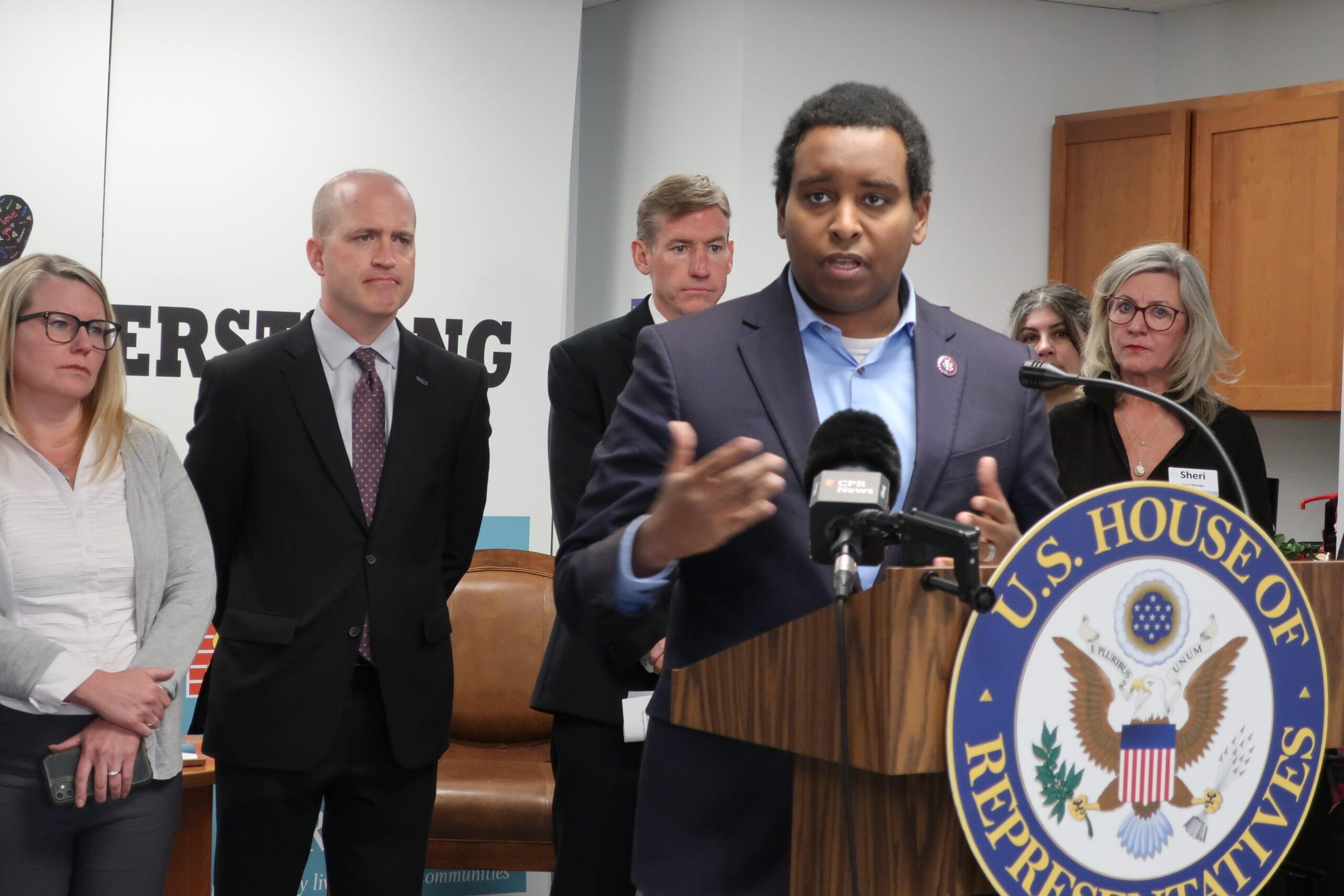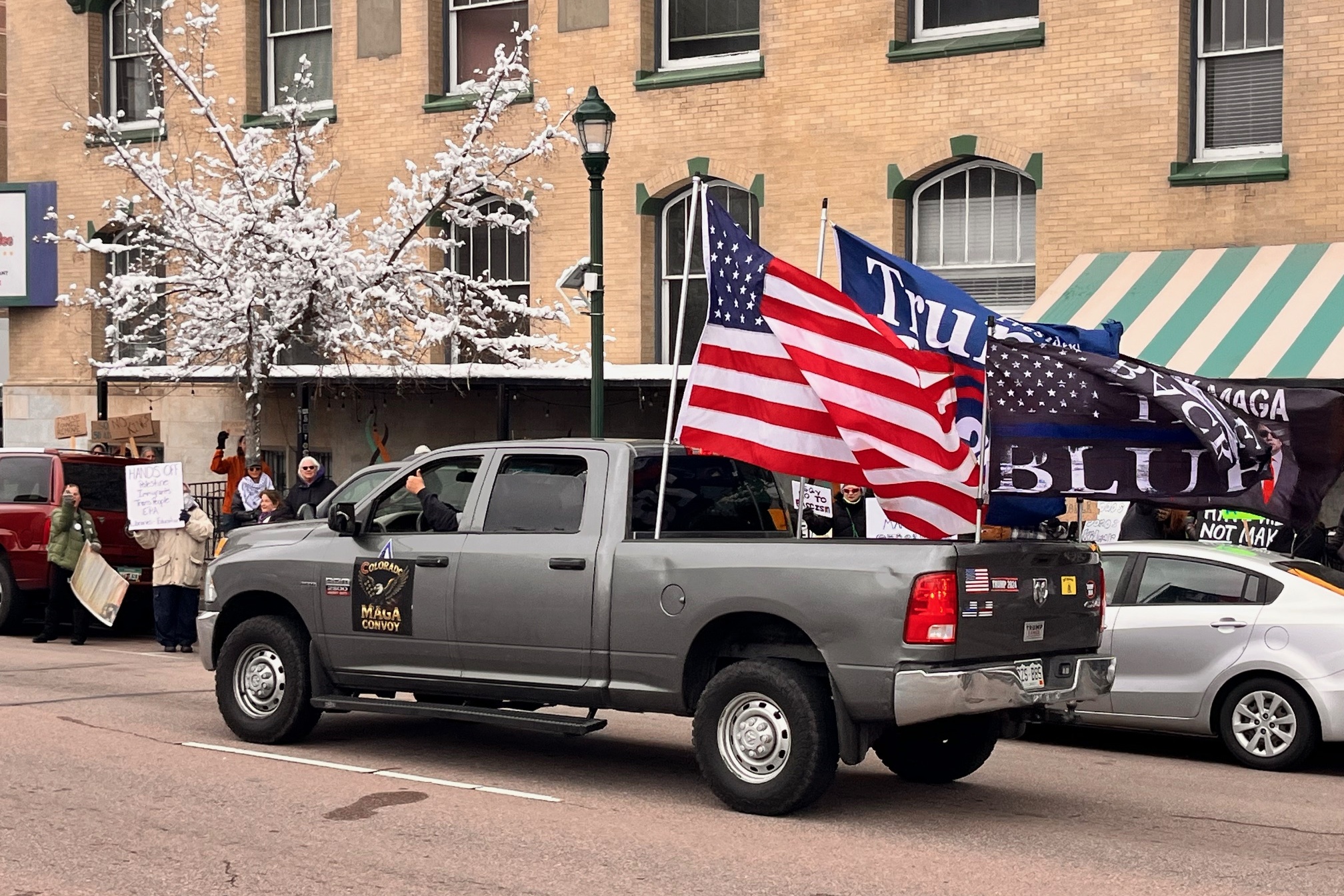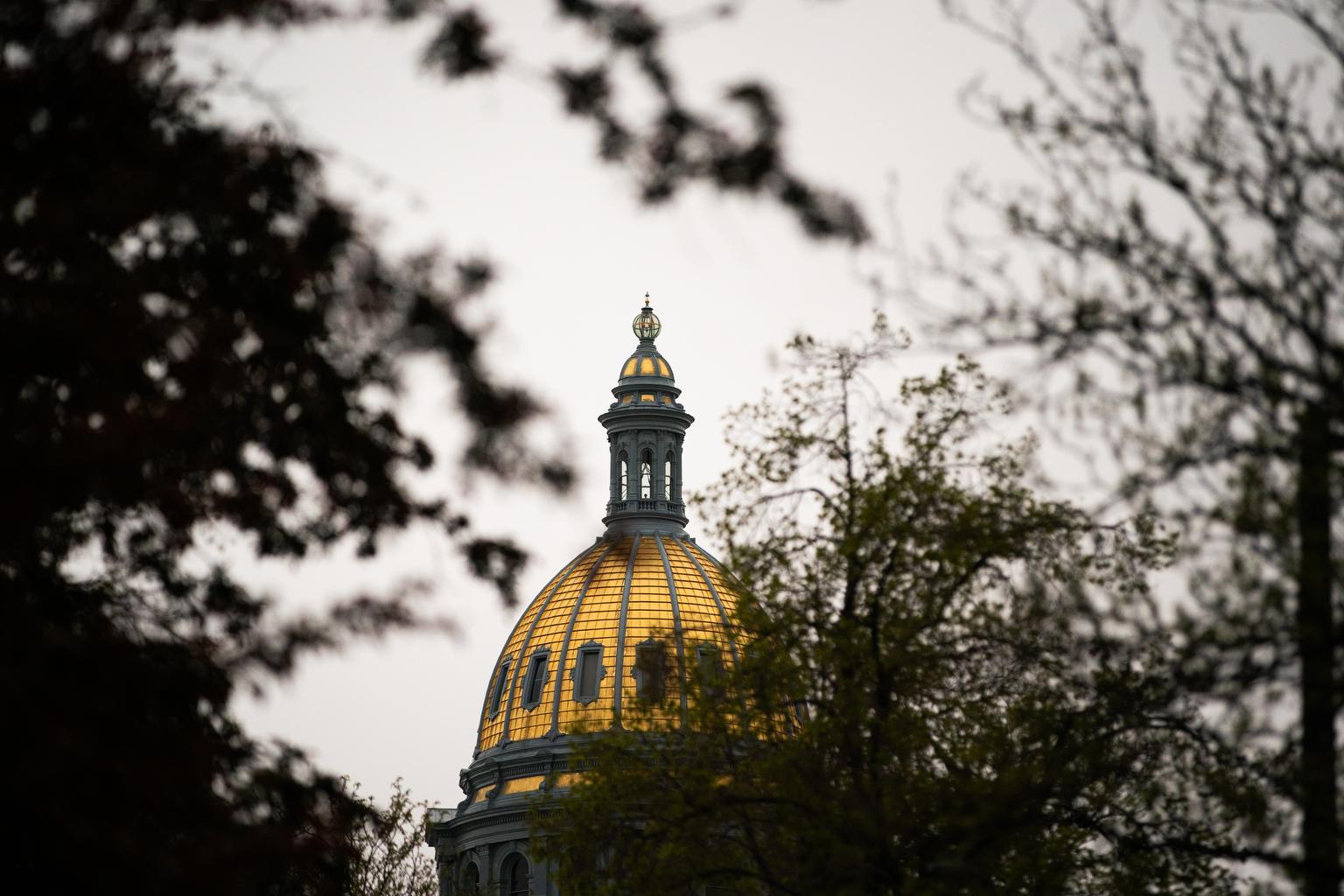
Rep. Joe Neguse introduced a package of four bills on Tuesday that would boost federal funding for mental health services for mass shooting survivors and initiate a new study about the threat of gun violence in workplaces.
The measures are part of a growing list of federal and state actions taken by Democrats in response to recent high-profile mass shootings in Colorado, including the one at a Boulder King Soopers store last year. The shooting left 10 people dead, including a Boulder police officer.
“Communities like ours have been plagued by the epidemic of gun violence,” Neguse said. “This legislation is born from the deep anguish that we feel at each of these tragedies and the desire that we have to ensure that these tragedies don't happen again.”
Unlike other measures passed since the Boulder shooting, the new bills don’t address firearm regulation directly.
Rather, they seek to bolster community preparedness for gun-related tragedies and take preventative steps to help prevent future shootings, Neguse said during a press conference in Boulder, where he outlined the proposed legislation.
One bill, the Safe Workplaces Act, would direct the National Institute of Occupational Safety and Health to conduct a study on threats of violence, including gun violence, in the workplace.
Its findings would then shape new policy at the Occupational Safety and Health Administration (OSHA), which sets federal rules and best practices around worker safety, Neguse said.
Another would divert $60 million in funding for local mental health services for survivors. The money would be distributed to local organizations through a new three-year grant program housed inside the Substance Abuse and Mental Health Services Administration (SAMHSA).
Other bills in the package would expand the reach of existing federal emergency grant programs to cover mass shooting survivors.
Those programs include the Department of Justice’s anti-terrorism and emergency funding program, which funds security projects at public-facing businesses and organizations, and the Victims of Crime Act, which provides financial assistance to victims of homicides and firearm violence.
Neguse’s new measures have bipartisan support unlike other legislation aimed directly at tougher firearm regulation. Republicans in Congress have pushed back on many Democrat-led efforts, including a separate Neguse-led bill seeking to restrict the sale of firearms to people convicted of certain crimes.
The Biden Administration meanwhile has sought to stem gun violence by announcing a new crackdown on “ghost guns,” firearms that are privately made and lack serial numbers. The new rules require manufacturers to be licensed and for buyers to pass a background check.
Last year, Colorado state lawmakers passed half a dozen bills they said would curb gun violence. The new laws require people to safely store firearms and report a lost or stolen firearm. Another measure is meant to better enforce an existing law that removes guns from people charged with domestic violence.
However, this year’s session has seen fewer gun-related bills introduced. Lawmakers passed one measure that bans anyone in Colorado from openly carrying a firearm within 100 feet of a voting location.
Neguse said his new package isn’t “mutually exclusive” to other steps the government can take to stem gun violence.
“We’re going to continue to push for common sense gun violence prevention measures,” Neguse said. “These all work together.”
Neguse’s bills have a long way to go before becoming law. He plans to introduce them on the House floor this week, where they still need to pass a majority vote before heading to the Senate.
But Boulder officials and community members said the new legislation is necessary because many people across the country are still working through grief and trauma that follows mass shooting incidents.
Michael Dougherty, Boulder’s district attorney, said support services aren’t cheap, and additional funding could help bring projects like the Boulder Strong Resource Center, which offers mental health services to residents affected by the shooting, to other cities with fewer financial resources.
“Not every community has this type of response,” Dougherty said. “We're very fortunate.”
Workers with the United Food and Commercial Workers’ Local 7 spoke at the bill introduction Tuesday. The union represents many of the workers at grocery stores across the state, including the Table Mesa King Soopers
Sandy Chavez, a longtime Safeway employee, said that a new study about workplace safety practices could lead to changes that employees have been unable to win in labor contracts, such as extra armed security guards in stores.
“I actually went back to the night shift just to limit my exposure to COVID and aggressive customers,” Chavez said. “The last three years, including the pandemic, have truly been frightening for those of us working in stores.”









